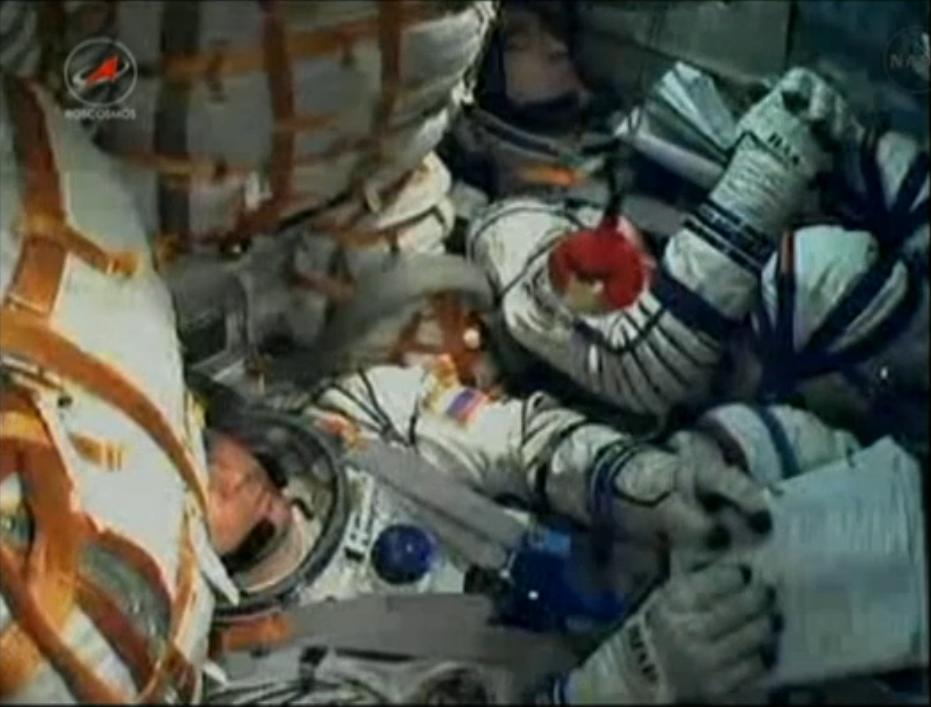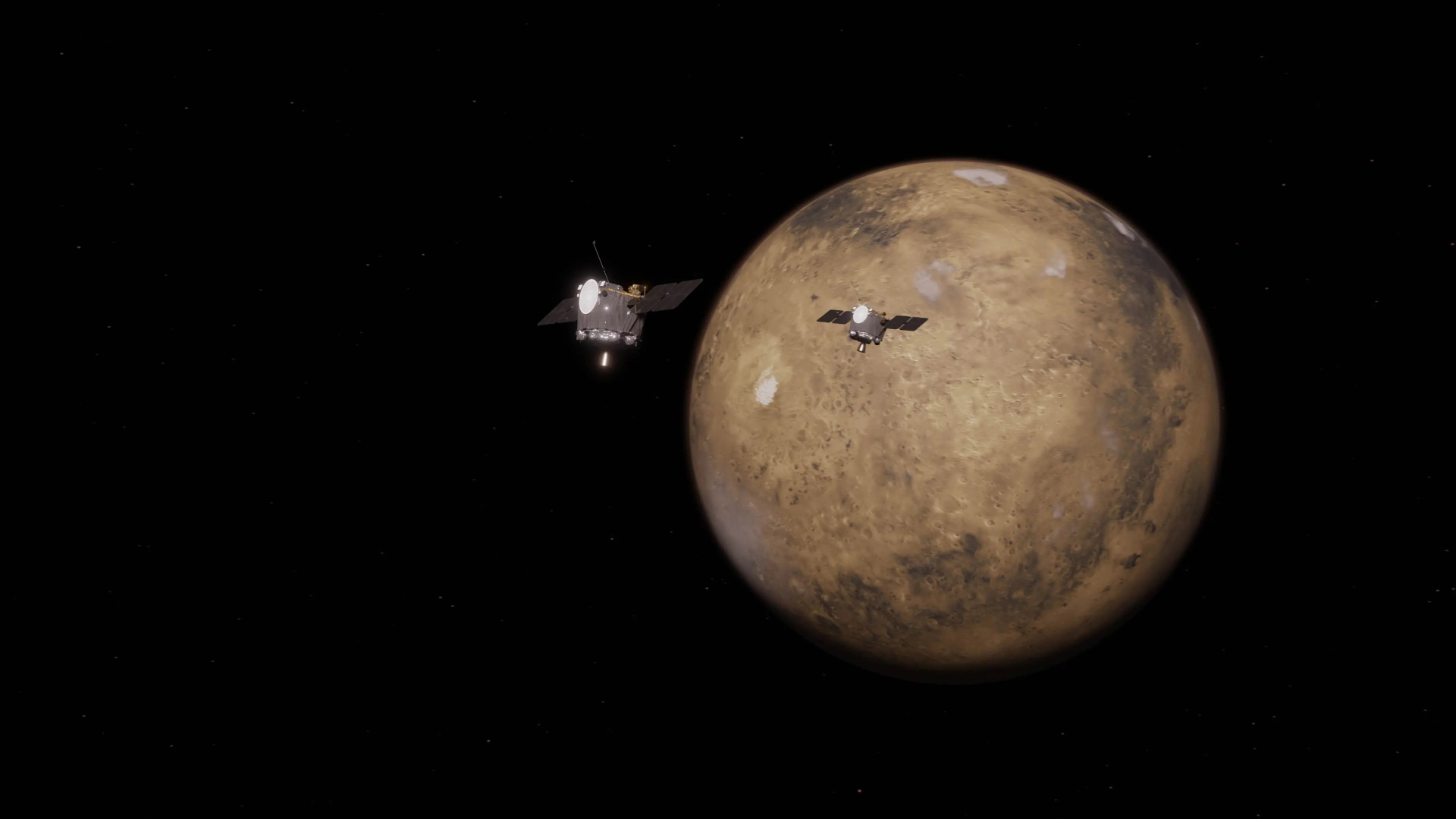'Angry Bird' Soars Into Space Aboard Russian Rocketship

Two Russian cosmonauts, a NASA astronaut and an "Angry Bird" took off for the International Space Station Sunday evening (Nov. 13), soaring through falling snow and setting several historical firsts and lasts in the process.
The Russian Soyuz TMA-22 spacecraft lifted off on top of a Soyuz-U booster from the Baikonur Cosmodrome in the desert steppe of Kazakhstan at 11:14 p.m. EST (0414 GMT Monday, Nov. 14). On board were cosmonauts Anton Shkaplerov and Anatoly Ivanishin, and NASA astronaut Dan Burbank.
Flying with them was a toy red bird from the mobile video game "Angry Birds." Selected by Shkaplerov's 5-year-old daughter, the doll was used by the crew as a "zero gravity indicator." When the small plush bird began to float inside the Soyuz, it signaled to the crew that they had reached orbit.
"Did you already hear that the Red Bird is a crew member on the Soyuz spacecraft?" officials representing the video game developer, Rovio Mobile, said via Twitter. "Greetings from space!"
NASA responded with its own words of welcome.
"Hey @AngryBirds Red Bird, we knew we'd get you to space one way or another," agency officials wrote in a Twitter update. "Looked like a great launch."
The trio (and their bird) will join the space station's Expedition 29 crewmates, commander Michael Fossum and flight engineers Satoshi Furukawa and Sergei Volkov, when their spacecraft docks to the station's Poisk mini-research module at 12:33 a.m. Wednesday, Nov. 16 (0533 GMT).
Breaking space news, the latest updates on rocket launches, skywatching events and more!
Since Burbank, Shkaplerov and Ivanishin were originally scheduled to liftoff in September, their time as part of the Expedition 29 crew will be limited to less than a week. Fossum, Furukawa and Volkov, who have been living at the orbiting complex since June, are scheduled to return home on Nov. 21. Before they depart, Fossum will hand over command of the outpost to Burbank, who will lead the station's Expedition 30 mission.
Last of its type
The Soyuz TMA-22 launch also marked the last flight of the TMA-class spacecraft. Since last year, Russia has been phasing in use of "digital" Soyuz TMA-M-class capsules, which have been upgraded to feature modern navigation and control systems.
Soyuz TMA-03M is scheduled to lift off on Dec. 21, 2011, with Expedition 30 crewmembers Oleg Kononenko, André Kuipers and Don Pettit. [50 Great Russian Rocket Launch Photos]
The first of the TMA vehicles launched to the International Space Station nine years ago in 2002. Like the TMA-M, the TMA superseded an earlier version of the Soyuz — the TM-class — that had been used since 1986.
The Soyuz TMA-22 is the 111th Soyuz spacecraft to fly since the very first Soyuz (simply called "Soyuz 1") launched on April 23, 1967. Almost all of the crewed Soyuz capsules lifted off from the same pad, referred to as "Gagarin's Start," named after the world's first human in space, Yuri Gagarin, who departed Earth from the same launch pad 50 years ago.
Follow collectSPACE on Facebook or Twitter @collectSPACE and editor Robert Pearlman @robertpearlman. Copyright 2011 CollectSPACE.com. All rights reserved.

Robert Pearlman is a space historian, journalist and the founder and editor of collectSPACE.com, a daily news publication and community devoted to space history with a particular focus on how and where space exploration intersects with pop culture. Pearlman is also a contributing writer for Space.com and co-author of "Space Stations: The Art, Science, and Reality of Working in Space” published by Smithsonian Books in 2018.
In 2009, he was inducted into the U.S. Space Camp Hall of Fame in Huntsville, Alabama. In 2021, he was honored by the American Astronautical Society with the Ordway Award for Sustained Excellence in Spaceflight History. In 2023, the National Space Club Florida Committee recognized Pearlman with the Kolcum News and Communications Award for excellence in telling the space story along the Space Coast and throughout the world.

